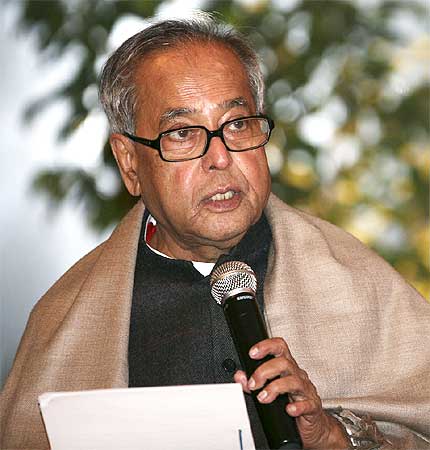
Pranab Mukherjee: Minister of Finance
S S Palanimanickam: Minister of State (Finance)
Narain Meena: Minister of State
Pranab Mukherjee's parliamentary career began as a Rajya Sabha member in 1969. The 73-year-old Mukherjee became the deputy minister for Industrial Development in 1973. Mukherjee was the finance minister in Indira Gandhi's Cabinet from 1982 to 1984.
Ranked as one of the best five finance ministers of the world for the year 1984 by Euro Money, a New York journal, he was also conferred Best Parliamentarian Award for 1997. He was the External Affairs minister in Manmohan Singh's last Cabinet.
Issues
Pranab Mukherjee takes charge at a time when the country is facing an economic crisis. India's GDP growth now stands below 7 per cent and several industrial sectors are in deep crisis.
The finance minister faces a huge task of providing additional fiscal stimulus while containing the growing fiscal deficit. The first task before Mukherjee would be to present the budget for 2009-10 and announce the policies of the new UPA government. The industry has sought fiscal sops to boost corporate investments. He has a tough job of maintaining growth and at the same time offering sops to see that industry does not suffer.
What he plans to do
Mukherjee is aiming to revive India's growth to about 9 percent. Growth and employment aren't possible without increased spending and borrowing," Mukherjee said. He has promised sops to revive the economy.
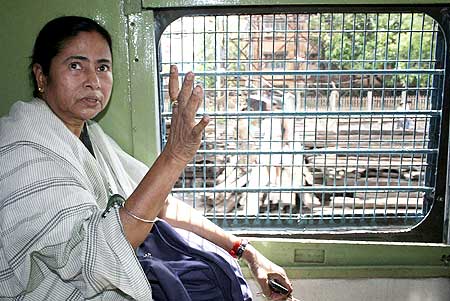
Mamata Banerjee has been a fighter, giving nightmares to parties she has teamed up with. In 1997, Mamata Banerjee split the Congress Party in West Bengal and established the All India Trinamool Congress. In the 1984 general election, she became one of India's youngest parliamentarians ever, beating veteran Communist leader Somnath Chatterjee.
In 1999, she joined the Bharatiya Janata Party-led National Democratic Alliance government as the Railways minister. In 2001, after parting ways with the BJP, she moved out of the Cabinet. She then joined hands with the Congress party for West Bengal's 2001 elections.
She returned to the Cabinet in January 2004, holding the Ministry of Coal and Mines portfolios till 2004. The 54-year-old won from the Kolkata South constituency.
Issues
Mamata takes over at a time when the Indian Railways is on a high growth track under former railway minister Lalu Prasad's leadership. When Lalu took over as the railway minister, the Indian Railways was a loss-making organisation. He turned around the fortunes of the organisation with a profit of Rs 25,000 crore (Rs 250 billlion).
Mamata has the huge task of maintaining this growth and living up to the expectations of the public in terms of profit, good service, safety and security of passengers. She also has a tough job at hand of ensuring funds for ambitious projects and modernisation of the Railways.
What she plans to do
Mamata has promised to modernise the rail network. She has announced special monthly passes at Rs 20 for those with monthly income below Rs 500, besides a new train for West Bengal. "It is a social obligation we have to fulfill for the humanity. We will try to give economy freedom to these sections for train travel," Banerjee said.
The Railways will also take measures to improve tourism and other sectors, she said. All pending railway projects in Jammu and Kashmir will be given special care, she said.
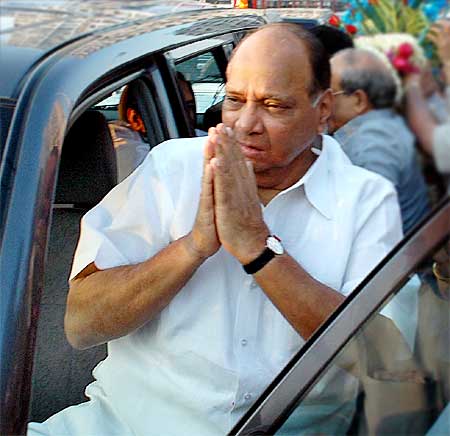
The Nationalist Congress Party chief Sharad Pawar has taken charge as Minister of Agriculture, Consumer Affairs, Food and Public Distribution. The 69-yearl-old Pawar founded the NCP in 1999, after separating from the Congress party.
He has held the posts of defence minister of India and chief minister of Maharashtra. Pawar also served as the Chairman of the Board of Control for Cricket in India from 2005 to 2008. Sharad Pawar entered the Maharashtra legislative assembly in 1967 from the Baramati constituency in Maharashtra.
Issues
The agriculture sector, which is the mainstay of the economy is under crisis. Despite the loans waivers, the farmers are still burdened by huge debt burden. The global financial crisis has led to a fall in the exports of agricultural products. The major drop has been in floriculture, fruits and vegetables and pulses.
What he plans to do
Pawar jun lift the ban on exports of wheat and non-basmati rice. The government is expected to ease curbs on futures trade and grain exports, boost sugar output and tax edible oils imports.
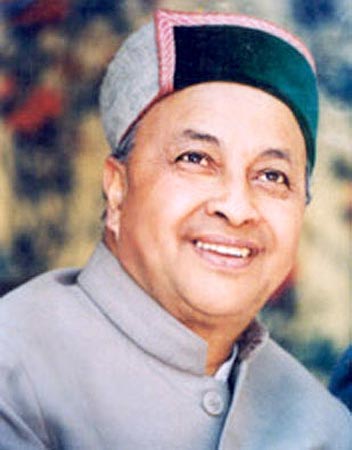
Virbhadra Singh became a member of the Lok Sabha in 1962. He was deputy minister of tourism and and civil aviation from December 1976 to March 1977. He has also served as the chief minister of Himachal Pradesh. The 72-year-old Singh won from Himachal Pradesh's Mandi constituency.
Issues
Steel producers are demanding fiscal measures to curb the threat of cheap steel imports. They have been seeking an increase in import duty to 15-20 per cent or a safeguard duty of about 25 per cent.
In November, the government re-imposed a 5 per cent import duty on steel and brought hot rolled steel under the restricted list of imports. Steel producers say that actual import of the metal continues unabated.
While the Indian steel prices are at Rs 26,000-27,000 a tonne, steel is being imported at a price of about $430 (Rs 20,200). Input cost is still high for steel producers.
What he plans to do
Virbhadra Singh said he would ensure the timely completion of the expansion projects by state-run steel units to increase the production of the commodity was among his top priorities.
"There is also the need restructure the small steel public sector undertakings and attempt to merge them to bring about more synergies among them," Singh said.
He plans to bring in a rational, seamless and transparent regime for allocation of raw material resources to existing and prospective steel producers.
He would also take up the issue of supporting infrastructure, whether its port facilities, railway and road access or power, that the ongoing capacity expansion of PSUs will require.
The timely completion of Steel Authority of India Ltd's and Rashtriya Ispat Nigam Ltd's expansion projects, together totalling investments of Rs 70,000 crore (Rs 700 billion), and NMDC's plans for an integrated steel plant in Chhattisgarh would be a priority, Singh said.
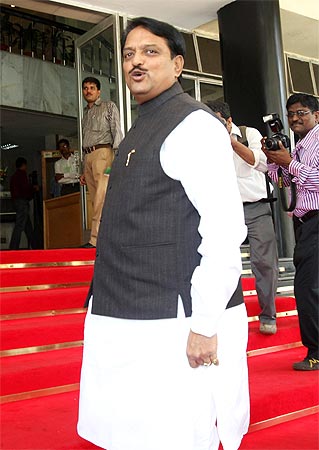
Vilasrao Deshmukh has the record of being the chief minister with the longest term in Maharashtra. He was Chief Minister from 1999 to 2003 and from 2004 to 2008. The 64-year-old Deshmukh was member of the Maharashtra Legislative Assembly from 1980 to 1995.
Issues
Divestment of public sector undertakings is a major issue Deshmukh will have to deal with.
What he plans to do
Deshmukh said achieving the 100-day target set by Prime Minister Manmohan Singh would be his priority.
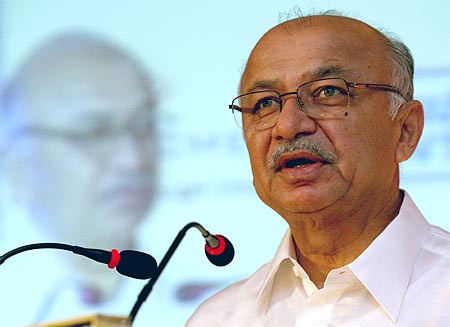
Sushilkumar Shinde has served as chief minister of Maharashtra. He entered politics in 1971. He also holds the record for presenting 9 successive budgets in State Assembly as the finance minister. He was also the governor of Andhra Pradesh in 2004. The 68-year-old Shinde won from the Solapur constituency.
Issues
Many towns and villages face power cuts from 4 to 10 hours. Many households still do not have electricity. Power sector reform is one of the biggest problems the Indian economy faces. Transmission and distribution losses are pegged at 27 per cent. Collection losses add to about 7 per cent.
Financial losses for the sector itself amount to near 4 per cent of GDP. According to MAIT (Manufacturing Association of Information Technology) India Inc lost around Rs 44,000 crore (Rs 440 billion) in 2008-09, due to power outages
What he plans to do
Rural electrification, particularly for the BPL households, is on the top of his agenda for the next 100 days.
He assured every possible effort to fulfill the promise of "Power for All by 2012". Stating that the capacity addition of 1 lakh MW is an achievable target, he said that no project will be delayed due to shortage of funds.
He plans to speed up Ultra Mega Power Projects (UMPP).

National Conference leader Farooq Abdullah has served as chief minister of Jammu & Kashmir three times. He still remains active in politics after handing over the charge of his party to his son, Omar Abdullah.
Issues
Renewable Energy is the answer to India's power woes. A transition from conventional energy systems to those based on renewable resources is necessary to meet the increasing demand for energy and to address environmental concerns.
What he plans to do
"This ministry is a challenge and I take this challenge head on. I am happy that I have been entrusted with the job which ultimately benefits our future generation. No profile is big or small. It is just a perception of people. I think I am small for New and Renewable Energy Ministry. This portfolio is bigger than me," Abdullah said.
He plans to create awareness about the ministry because people don't know much about it.
"I will go to each and every state and tell them what this ministry is all about and what help we can offer to promote non-conventional energy sources," he said.
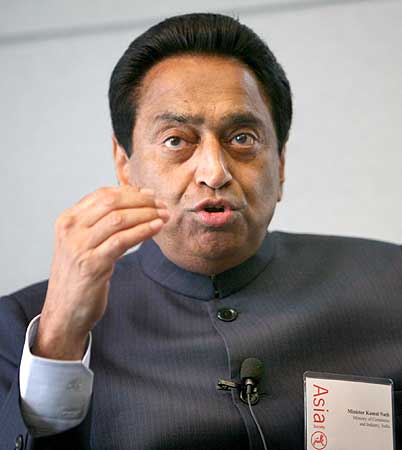
Kamal Nath has been gifted with a new portfolio this time. Nath was first elected to the Lok Sabha in 1980. The 63-year-old served as Union Cabinet Minister of Commerce and Industry since Jun 23, 2004.
Kamal Nath was named the FDI Personality of the Year 2007 by the FDI magazine and the Financial Times for his "active efforts to attract foreign businesses to India, boost exports, and promote trade and investment".
Issues
India has a major challenge of building the roads and infrastructure. This needs improvement in design, modernisation of construction techniques and the use of new technologies. India also needs speedy development of roads and flyovers in cities.
What he plans to do
Nath said he would go for major changes in the ministry to put road construction back in top gear. His focus would be on implementation of projects on the ground rather than making big plans, an indication that the sector will get a major boost.
"Sadkon ko napa jaata hai, plans ko nahin (roads are measured and not the plans). Lot of thought has been given to planning in the past two years. Now we have to deliver. Performance is evaluated on the basis of kilometres of roads that are built. Now our agenda is of change. The system has to be overhauled so that work on the ground happens. Planning has to be delivered on roads," he said
"Some of the old regulatory frameworks relating to transportation like multiple permit and Motor Vehicles Act have to be looked at from new perspectives. Old laws have to be amended," he said.
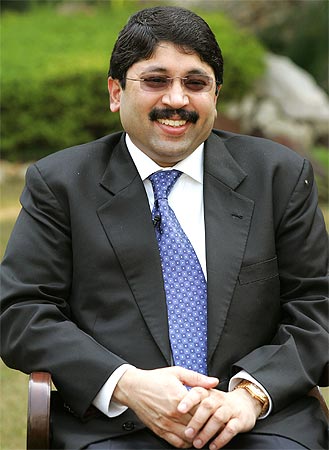
The 42-year-old Dayanidhi Maran was the minister of communications and IT in the previous Manmohan Singh Cabinet. Dayanidhi Maran had reduced the mobile and landline call rates drastically during his tenure as Union IT and Communications minister.
Maran was instrumental in bringing big-ticket investments in the IT sector. He took various steps towards making India a chip manufacturing hub. Maran, whose tenure was cut short in the previous government, has said this tenure is going to last for five years.
Issues
India's textiles industry is facing a major crisis. According to government estimates, about 5 lakh people have lost their jobs in this sector by March 31, due to economic slowdown which has drastically led to a fall in exports. However, industry groups, peg job loses at around 1 million.
The textiles and garments industry is the second-largest employer in India after agriculture. It directly employs 35 million people and indirectly provides livelihood to about 88 million people.
What he plans to do
"My agenda of creating one crore additional employment is for five years. I want to complete my five-year term this time," he said.
Build world-class, manufacturing capacities and achieve a dominant place in the manufacture and export of textiles and clothing.
Equip the textiles industry to withstand the pressures of import penetration, and maintain its dominance in the growing domestic market.
Enable small & medium enterprises (SMEs) to achieve competitiveness and enable them to face the global scenario with confidence.
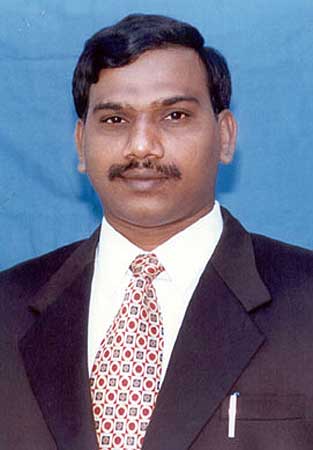
Issues
BSNL divestment, 3G Wimax auction, mobile number portability are also awaiting government clearance and lowering mobile tariffs.
What he plans to do
The focus will be on starting 3G services at the earliest. "By the end of this year, process for acutioning 3G spectrum (radio frequency) would be completed," he said.
Bharat Sanchar Nigam Limited (BSNL) and Mahanagar Telephone Nigam Ltd (MTNL) are the only two operators to offer 3G services in India, while private players are awaiting spectrum to be apportioned.
Raja said he expects local mobile call prices to tumble to 10 paisa a minute (the current average tariff is 60 paisa) and national long distance call prices to 25 paisa a minute (from Re 1 now) much to the disjun of the telecom companies. Telecom companies said that prices cannot fall to such levels under the existing regulation.
He also said that mobile number portability, which would allow users to switch operators without changing numbers, will begin in October.
The minister said focus would also be on IT sector, like taking e-governance to Taluk level.
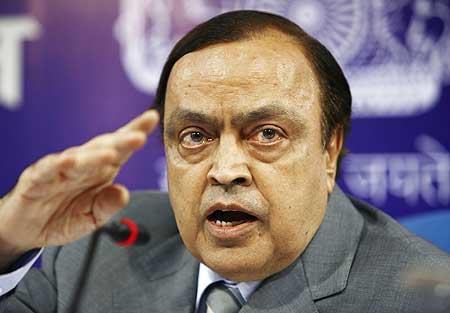
Murli Deora was president of the Mumbai Regional Congress Committee for 22 years from 1984 to 2006. He was appointed as Minister of Petroleum and Natural Gas in 2006. The 72-year-old Deora is a Rajya Sabha member.
Issues
Deregulation of oil prices is a major issue.
What he plans to do
The government will consider deregulating petrol and diesel prices as also increasing rates of natural gas sold by state firms, said Murli Deora.
He is likely to usher in reforms in auto fuel pricing, as crude oil prices have dropped. He plans to introduce a rural LPG distributorship in the first 100 days.
"At present, 9,350 LPG agencies cover only 50 per cent of the population and we want to extend the coverage to every nook and corner," he said.
"The Gramin LPG Vitrak scheme would be launched at locations having potential of up to 1,000 refills per month." The scheme will expand the distribution network of cooking gas in remote and rural areas. Benefits of development must reach villages.
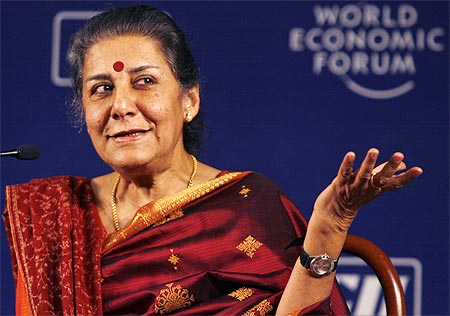
Ambika Soni has served as Minister of Tourism and Culture in the previous government. As tourism minister, she had launched the 'Incredible India' campaign. The 65-year-old Soni quit the Indian Foreign Service to join politics.
Issues
Content code for television news channels and improving the information and broadcasting system.
What she plans to do
The issue of content code for television news channels will be discussed with all stake holders to find a solution, said Union Information and Broadcasting Minister Ambika Soni.
She added that with Commonwealth Games scheduled for next year, her ministry would step up preparations to ensure high quality broadcast of the mega sporting event.
"I will speak to all the stakeholders concerned on various aspects of the media industry. Anything related to the media will be made known to you in a transparent manner," she said.
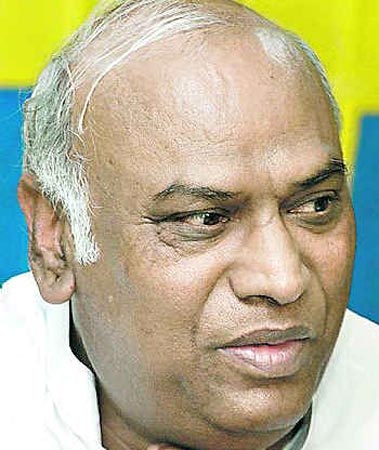
Mallikarjun Kharge joined politics as a student leader in the Government Arts College in Gulbarga. A lawyer, he has the record of winning continuously from Gurmitkal assembly constituency in Gulbarga district from 1972 to 2004. The 67-year-old Kharge has held several posts in the party and in state governments.
Issues
The key issues in this sector pertain to the financial crisis and its impact on employment, labour issues related to migrant workers, skill development and employability and issues.
What he plans to do
Kharge outlined the priority areas of the Ministry and said that expansion of skill development initiative would be taken up in a big way and similarly, it would be ensured that the coverage under Rashtriya Swasthaya Bima Yojna (RSBY) Scheme is expanded to cover all BPL workers within three years.
He said that the RSBY which already covers the building workers, would also be expanded to cover others above poverty line (APL) workers in the unorganized sector.
The Minister said that the other priority areas include the implementation of social security schemes under Building & Other Construction Workers Act, the promulgation of the National Employment Policy and amendment of EPF and ESI Acts to cover all establishments with 10 or more employees instead of existing threshold of 20 employees.
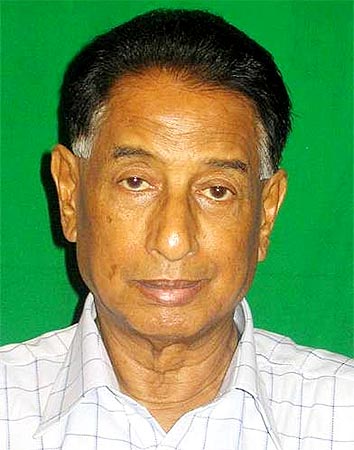
The 74-year-old Handique represents the Jorhat constituency in Assam. He started his political career in 1972 as an MLA.He was elected to Lok Sabha in 1991. He has served as minister of state in defence and parliamentary affairs and ministry of chemicals & fertilizers. He was minister of state parliamentary affairs in the last UPA government.
Issues
The mineral industry constitutes an important part of Indian economy. The growth of this sector is vital as India is rich in mineral resources. There is a need for rapid development of the mining sector, as the manufacturing sector depend on the mining sector.
What he plans to do
He said that the ministry should draw the strategy to meet the targets for first 100 days of the government in the office.
The minister also underlined the need for strengthening of implementational mechanism to enable the North-Eastern states to catch up with the pace of development of other regions.
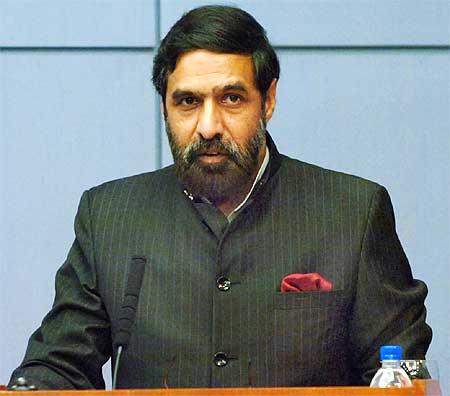
The 53-year-old Anand Sharma is a Rajya Sabha member from Himachal Pradesh. He has served as the Minister of State in the Ministry of External Affairs.
Issues
The industry has been demanding more incentives to tide over the economic crisis. Sops such as interest subsidy, exemptions from income tax and service taxes, and support for access to special markets are some of the demands he needs to look at. The government needs to look at a 33 per cent year-on-year drop in exports during April. The trade data for April 2009 pegs exports at about $11 billion compared to $16 billion in April 2008.
What he plans to do
Ruling out any "review" of the foreign direct investment policy, Anand Sharma said there are safeguards against FDI in sensitive sectors like broadcasting and defence production, while the policy does not allow overseas investment in retail, he said.
The Foreign Trade Policy will be announced during August 2009.
Stressing on the need to re-energize the Inter-State Trade Council, the Minister informed that states would be involved in creating an investor-friendly climate in the country.
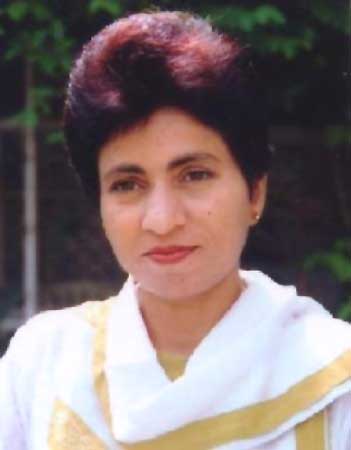
Selja Kumari served as minister of state (independent charge) of Ministry of Housing and Urban Poverty Alleviation in the UPA government. The 46-year-old Selja who began her political career in the Mahila Congress becoming its president in 1990, represents the Ambala constituency of Haryana.
She was Union Minister of State for Education and Culture in the Narasimha Rao-led Congress government. She was Union Minister of State (Independent Charge) Ministry of Housing and Urban Poverty Alleviation in the Manmohan Singh-led UPA government. On 16th Jun,2009; she has once again been re-elected from the same constituency making this her second consecutive victory from Ambala
Issues
Housing and poverty alleviation continues to remain the biggest challenge for the government.
What she plans to do
With a shortage of housing estimated at nearly 25 million, the government will focus on affordable housing by involving the private sector.
Private sector is also recognising the growing demand for affordable housing, she said after assuming charge of the ministry for the second term.
"Notwithstanding the economic slowdown our efforts will be to put major thrust in the housing sector as our goal is that everybody should have access to affordable housing. We are moving towards that goal," she added.
She said two schemes have been launched in the first quarter of 2009 to encourage states to provide urban land at affordable costs for housing and also to reduce the cost of credit for housing for the poor.
"Our budget allocation has also been increased from Rs 2,500 crore (Rs 25 billion) to Rs 3,300 crore (Rs 33 billion) in this fiscal for carrying out the various programmes providing better amenities to people in cities," she added.
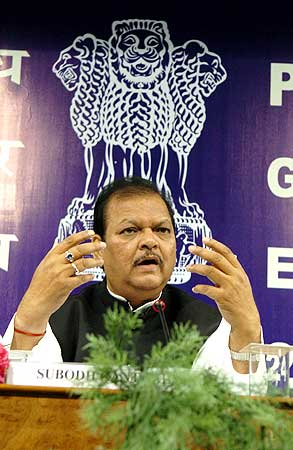
The 58-year-old Subodh Kant Sahai won the only seat for the Congress in Jharkhand. Sahai was elected as member of the Legislative Assembly from the Hatia constituency in Bihar for three consecutive terms from 1977-89 and had held several key posts in state politics.
He was elected to the Lok Sabha for the first time in 1989 and served as Union Minister of State for Home Affairs in 1990. He was also given additional charge of Information and Broadcasting.
Issues
There is a massive wastage in perishable commodities, initiatives to curb this have not succeeded. No effective linkages between farmers and the food processing industry. The food processing sector needs huge investment for development.
What he plans to do
"The food processing sector is going to be on the driving seat of the Indian economy in the next five years. By the end of this fiscal, the sector is going to contribute a sizable amount in the GDP," Subodh Kant Sahai Sahai said.
Sahai also expressed confidence that the ministry would achieve the target of attracting investments to the tune of Rs 1,00,000 crore (Rs 1 trillion) in the food processing sector by 2015.
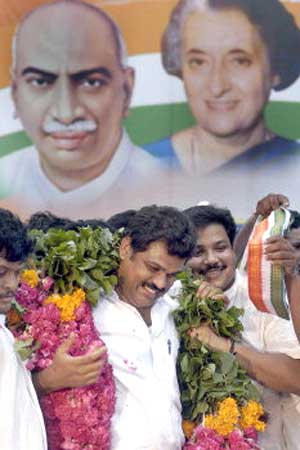
G K Vasan was the leader of the Tamil Mannila Congress. He later merged his party with the Congress.
Issues
Sethusamudram project is yet to take off. Modernisation and connectivity of ports
What he plans to do
The expert panel led by RK Pachauri would submit its report on the Sethusamudram project soon, said Union Minister for Shipping G K Vasan said.
He reiterated that the Sethu project would be implemented, as it was beneficial not only to the state but also to the nation. It would be done after the Supreme Court pronounces the verdict, he added.
Vasan said that he would focus on increasing the productivity of ports, besides modernising them.
Ports would be linked through roads. Ports in the State including those in Kanyakumari, Marakanam and Cuddalore would be renovated.
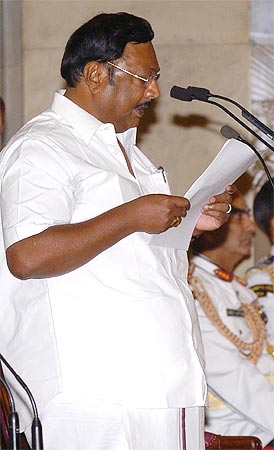
The elder son of Tamil Nadu chief minister K Karunanidhi, M K Azhagiri won the Lok Sabha seat from the Madurai constituency. Azhagiri has high political ambitions and hopes to take over the party's reins. However, Karunanidhi favours younger son Stalin. This has led to clashes between the supporters of M K Stalin and M K Azhagiri, after which Azhagiri was asked manage the party in the southern districts of Tamil Nadu.
Issues
Increase the reach of subsidized fertilizers throughout India. Make medicine prices more cheaper and increasing the production of fertilizers and improving research and development of the pharma sector.
What he plans to do
His priority will be to ensure the timely availability of various types of subsidized fertilisers to farmers throughout India.
He said the domestic production of fertilizers will be maximized by modernizing and restructuring of our existing fertiliser units and steps will be taken to reopen the closed factories and production revived.
Steps will be taken for ensuring steady supply of raw materials especially in the field of Phosphates and Potassium from foreign countries.
He said all types of medicines used by the common people will be provided at an affordable price.
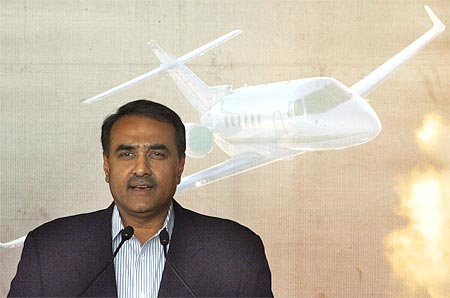
Praful Patel: Minister of State (Independent Charge) of the Ministry of Civil Aviation
Praful Patel was first elected as a member of the Lok Sabha in 1991 at the age of 34. He was then elected three times consecutively, however, he lost in the 1999 Lok Sabha elections. A businessman-turned minister, he won the Lok Sabha seat from Bhandara-Gondia constituency in Maharashtra.
Issues
India's airlines are burdened with huge losses and rising debt. The sector losses for the fiscal year ended in March 2009 are expected to nearly double from last year to $1.75 billion.
The number of domestic passengers fell by 591,000 or 15.2% year-on-year. A slowing economy has worsened the sector's prospects and it seeks government's intervention for a revival.
What he plans to do
Patel said he would focus on be safety in the skies, building up of more and better infrastructure and strengthening Air India.
He said the government might consider bringing out an initial public offer (IPO) to infuse funds in Air India. The Ministry would be 'pro-active' in ensuring that Air India emerged as a strong carrier both in the domestic and international arena.
He also hinted at more reforms in the sector, including allowing foreign carriers to pick up stake in the domestic airlines.
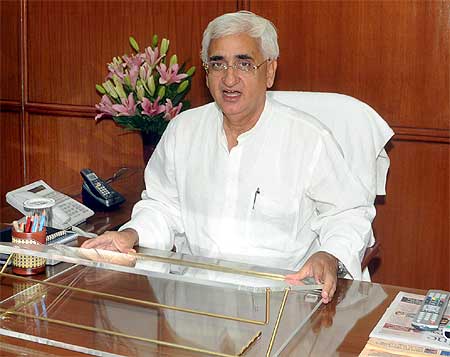
Salman Khursheed, a lawyer was first elected to Lok Sabha from Farrukhabad in 1991. He was the minister of state for external affairs in the Narasimha Rao government. The 56 year-old Khursheed won the ticket from Farrukhabadin Uttar Pradesh.
Issues
Improving corporate governance, tightening the loopholes in the system to curb frauds
What he plans to do
Salman Khursheed said that he would focus on the common man and protect the interests of small investors.
The government has asked the investigating agency SFIO to expeditiously initiate prosecution proceedings against the guilty in the Satyam case and put the whole process on the fast track.
"The SFIO has completed the investigation in the case and the Ministry has asked the SFIO to chalk out a strategy for prosecution in coordination with the CBI... A number of issues related to the corporate governance framework, role of directors, role of auditors also needs to be examined carefully and necessary corrections are required to be made in the corporate governance framework," said Khursheed after taking charge.
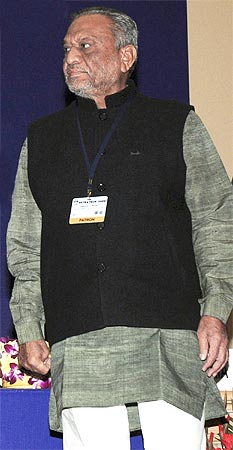
Dinsha J Patel: Minister of State (Independent Charge) of the Ministry of Micro, Small and Medium Enterprises
The 72-year-old Dinsha J. Patel first got elected as a MP from Kheda constituency in 1996. This is his fifth consecutive term. He was Minister of state in the MoS petroleum in the earlier Manmohan government.
Issues
Employing 42 million people, the MSME contributes to about 45 per cent of the country's total industrial output and 40 per cent of exports.
Many of the Small and Medium Enterprises have been forced to shut down and millions have lost their jobs.
What he plans to do
The government will address the credit needs of the tiny and small firms, while a separate fund for enterprises in the unorganised sector is proposed, new Minister for Micro, Small and Medium Enterprises Dinsha Patel.
"In the coming months, our focus area would be to evolve mechanism and structures for addressing the credit need of the sector which is largely unorganised," he said.
The ministry of Micro, Small and Medium Enterprises (MSME) would push for a separate fund for enterprises in the unorganised sector.
The ministry would also propose a 'Procurement Policy', which would set targets for the government departments and institutions to source their requirement from the tiny and small units.
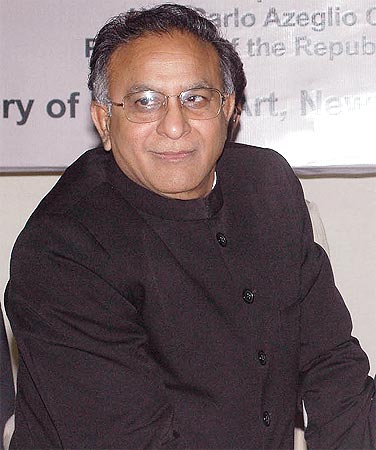
S Jaipal Reddy: Minister of Urban Development
Saugata Ray: Minister of State
S Jaipal Reddy was Information & Broadcasting minister in the United Front government. He was instrumental in giving autonomy to state-run Doordarshan. He served as the minister for Information and Broadcasting in the Manmohan Singh with additional responsibility for Culture.
The 67-year-old Reddy, from the Congress party, represents the Chevella constituency of Andhra Pradesh. He was conferred the Best Parliamentarian Award in 1998. He has been elected to the Lok Sabha five times.
Issues
Poor housing in cities and towns, poor infrastructure in cities
What he plans to do
Reddy said that the ministry is in advanced stages of talks with the World Bank to secure a $3 billion loan. It will be utilised for up gradation of the infrastructure facilities in the cities. He further added that improving the supply of water would be given utmost priority.
The private sector must now concentrate on providing accommodation for the middle class and the poor, Reddy said.
He plans to talk to state governments for providing land for housing the poor and the middle class.
His priority is to complete the task of drafting the bill seeking to create an urban regulatory authority for Delhi. The ministry will improve infrastructure services.
He is keen on taking the metro to other major cities and expanding its network in Delhi.